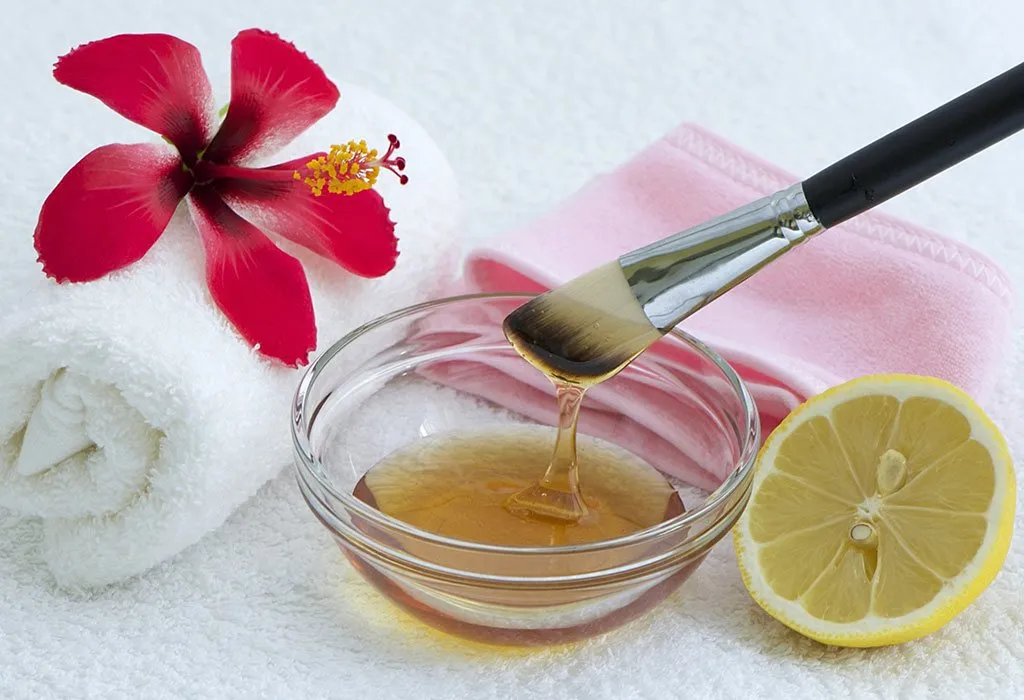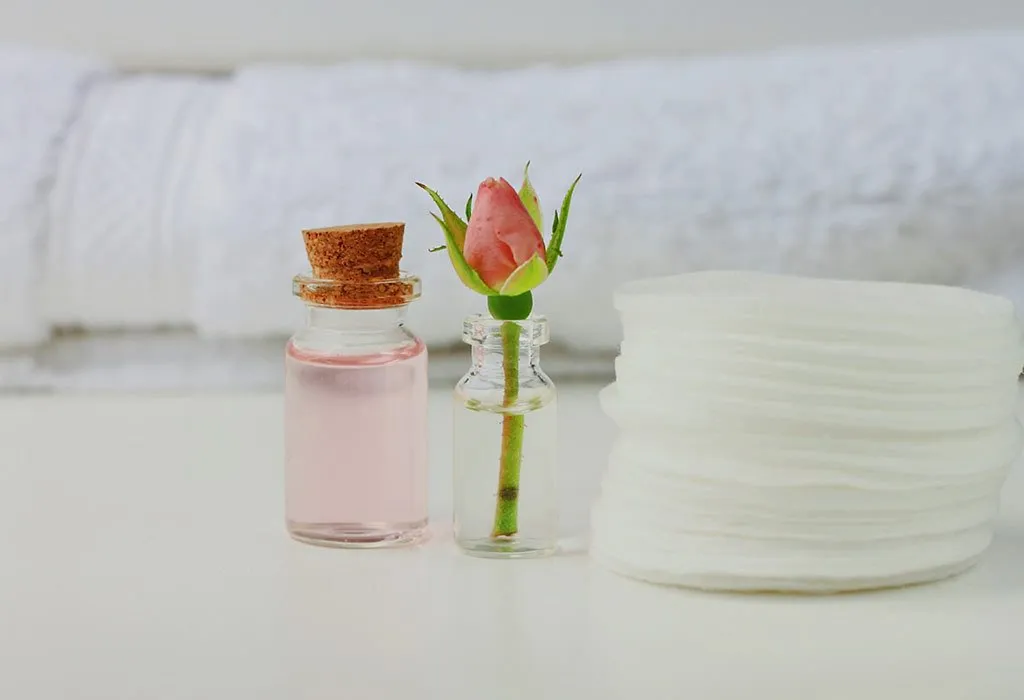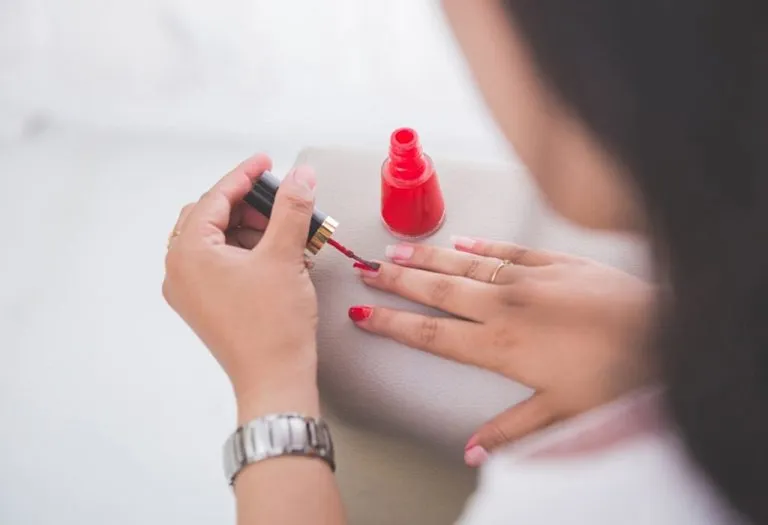Oily Skin During Pregnancy – Causes and Ways to Deal With It

Congratulations! You are pregnant and expecting your bundle of joy soon. If your pregnancy favours your skin condition, then you may have that beautiful glow on your face with lustrous tresses. However, not all women are that lucky, and some may experience just the opposite. If you fall in the latter category, you may have oily skin, which can cause acne, or you could end up with dry, rough hair (1). For some, oily skin brings in the “pregnancy glow” and for some, it is a breakout journey through pregnancy (2). If you suffer from oily skin during pregnancy, then you would like to read the following article, as we shall be discussing its probable causes and the various ways to deal with it.
What Causes Oily Skin in Pregnancy?
Here are some reasons that can make your skin oily during pregnancy:
- Your changing pregnancy hormones might be the reason for your greasy and oily skin (3).
- The hormonal changes often lead to more production of sebum during the early pregnancy months, leading to the sticky and oily skin.
- Increased blood flow during pregnancy can also make your skin oily. Increased blood flow may trigger the oil glands, leading to this skin condition (1).
How to Treat Oily Skin While Pregnant
An oily and greasy face is most likely to attract too much dirt and grime, which in turn causes clogged pores, leading to acne breakouts. Therefore, it is essential to treat oily skin. Following are some effective home remedies for oily skin in pregnancy:
1. Cucumber Juice
Squeeze some cucumber juice by grating a cucumber and then apply it on your face. Leave the same on your face for 30 minutes and then wash.
2. Lemon and Honey
The mixture of honey and lemon is very useful in getting rid of excess oil from the face. You can leave it on your face for 15 minutes and then wash the face with tepid water. But lemon may not suit all skin types, so it is advised that you check with your doctor before trying out this remedy. One of the possible side effects of using lemon on the face is skin irritation. If you have sensitive skin, avoid using lemon on your face.
3. Fuller’s Earth Mask
It is one of the most effective home remedial measures of getting rid of oil from the face. Make a paste with fuller’s earth and rose water, apply the mask on your skin and leave it till it dries off. Then rinse with tepid water.
4. Rose Water
Natural rose water works wonders in removing excessive facial oil. You can dip a cotton ball in some rose water and dab it on your face going off to bed.
5. Blotting Papers
You can use good-quality facial blotting papers to remove extra oil from your face and prevent potential breakouts (4).
6. Tomato Juice
Tomato juice is also very effective in dealing with the greasiness of the face. The various acids present in tomato juice are very beneficial in battling greasy face woes.
7. Keep Yourself Hydrated
Staying hydrated will keep your skin healthy and also aid the release of toxins from the body. Drink water to keep your skin healthy and supple.
8. Apple Cider Vinegar
This is beneficial in keeping your skin clear and healthy. Mix vinegar with water in a 1:3 ratio and use this solution as a toner. It is also useful in dealing with oily skin and acne during pregnancy.
9. Healthy Diet
Make sure you make healthier eating choices if you wish to combat oily skin during early pregnancy and also during the later stages. Consuming a high-calorie, sugary, fried or greasy diet can increase the production of oil in your skin. Include fruits and vegetables in your diet.
If you have been wondering about how to control oily skin during pregnancy, you might take help from any of the above-mentioned remedial measures.
How Long Can Prenatal Oily Skin Last?
If you are suffering from oily skin, then you would not want to know how long it may last. Well, in most cases, your skin will be okay by the time you descend into your second trimester. But, for some women, this condition may persist until the birth of their baby. In rare cases, it may last until you stop breastfeeding your baby.
Are There Any Solutions That Are Off-Limits for Pregnant Women?
There are many over-the-counter medicines, creams or ointments available, which contain salicylic acid or beta-hydroxide acid. Such chemicals may prove to be harmful as their probable side effects on pregnant women and the unborn baby are unknown. Therefore, refrain from using any skin products that may have such ingredients in them.
Can You Prevent Excessive Production of Oil on Your Face When Pregnant?
Yes, you can prevent excessive oil on your skin by following various remedial measures. Here are some top do’s and don’ts from dermatologists from the American Academy of Dermatology Association (4):
- Follow a well-balanced and healthy diet.
- Drink ample amounts of water.
- Wash your face every morning, evening, and after you exercise.
- Avoid harsh soaps, face washes, and shampoos, and use gentle foaming face wash, shampoo, and soap.
- Moisturise and sun protect daily.
- Don’t touch your face frequently as hands and fingertips, especially, have plenty of germs invisible to naked eye which could build a breeding ground for bacteria on the skin and cause skin to produce more sebum and spread the oil around (5).
- Use blotting paper.
- Do not sleep with makeup on.
However, there are no sure short measures available for preventing excessive oil production. This is because the main reason for the oil production is the fluctuating pregnancy hormones and they may settle down as you proceed with your pregnancy.
FAQs
1. How do you choose pregnancy-safe products for women with oily skin?
Oily skin and pregnancy don’t need to be at odds; you need to have the right products to maintain the balance. When choosing products for oily skin during pregnancy’s first trimester or any other trimester, make sure of the following things:
- Go with oil-free, water-based skin care and hair care products and cosmetics (3).
- Choose products labelling “non-comedogenic” or “non-acnegenic” tags as they won’t clog your pores.
- Avoid alcohol-based cleansers or toners.
- Stay away from scented or fragrance formulas.
- Put a stop to the use of retinol, retinoids, isotretinoin, and steroid-based products once you get pregnant, as they are not safe to use during pregnancy (6).
2. When will my skin go back to its usual self?
Most women start experiencing changes in their skin, returning to normal after delivery, while for some, it takes a little more time after they stop breastfeeding. Although the percentage is less, it is possible for women to to experience the skin clearing up to its pre-pregnancy self after the first trimester only. So, it may vary for every woman.
An oily or greasy face is not much of a hassle that you need to worry about during pregnancy. However, with a proper diet, hygiene and various home remedial measures, you may be able to control your condition. If you are having trouble with your skin condition or there is a severe bout of acne because of oily skin, you should seek the help of a dermatologist.
References/Resources:
1. 10 Things That Might Surprise You About Being Pregnant; Nemours KidsHealth; https://kidshealth.org/en/parents/pregnancy.html
2. Common Skin Changes During Pregnancy; Penn Medicine Lancaster General Health; https://www.lancastergeneralhealth.org/health-hub-home/motherhood/your-pregnancy/common-skin-changes-during-pregnancy
3. Skin Conditions During Pregnancy; ACOG; https://www.acog.org/womens-health/faqs/skin-conditions-during-pregnancy
4. How to Control Oily Skin; American Academy of Dermatology Association; https://www.aad.org/public/everyday-care/skin-care-basics/dry/oily-skin
5. 8 Tips for Getting Rid of Oily Skin; Cleveland Clinic; https://health.clevelandclinic.org/how-to-get-rid-of-oily-skin
6. Isotretinoin and other retinoids during pregnancy; March of Dimes; https://www.marchofdimes.org/find-support/topics/pregnancy/isotretinoin-and-other-retinoids-during-pregnancy
Also Read:
Dry Skin while Pregnant
Skin Darkening in Pregnancy
Common Skin Changes during Pregnancy
Common Changes in Face when Pregnant
Was This Article Helpful?
Parenting is a huge responsibility, for you as a caregiver, but also for us as a parenting content platform. We understand that and take our responsibility of creating credible content seriously. FirstCry Parenting articles are written and published only after extensive research using factually sound references to deliver quality content that is accurate, validated by experts, and completely reliable. To understand how we go about creating content that is credible, read our editorial policy here.








































